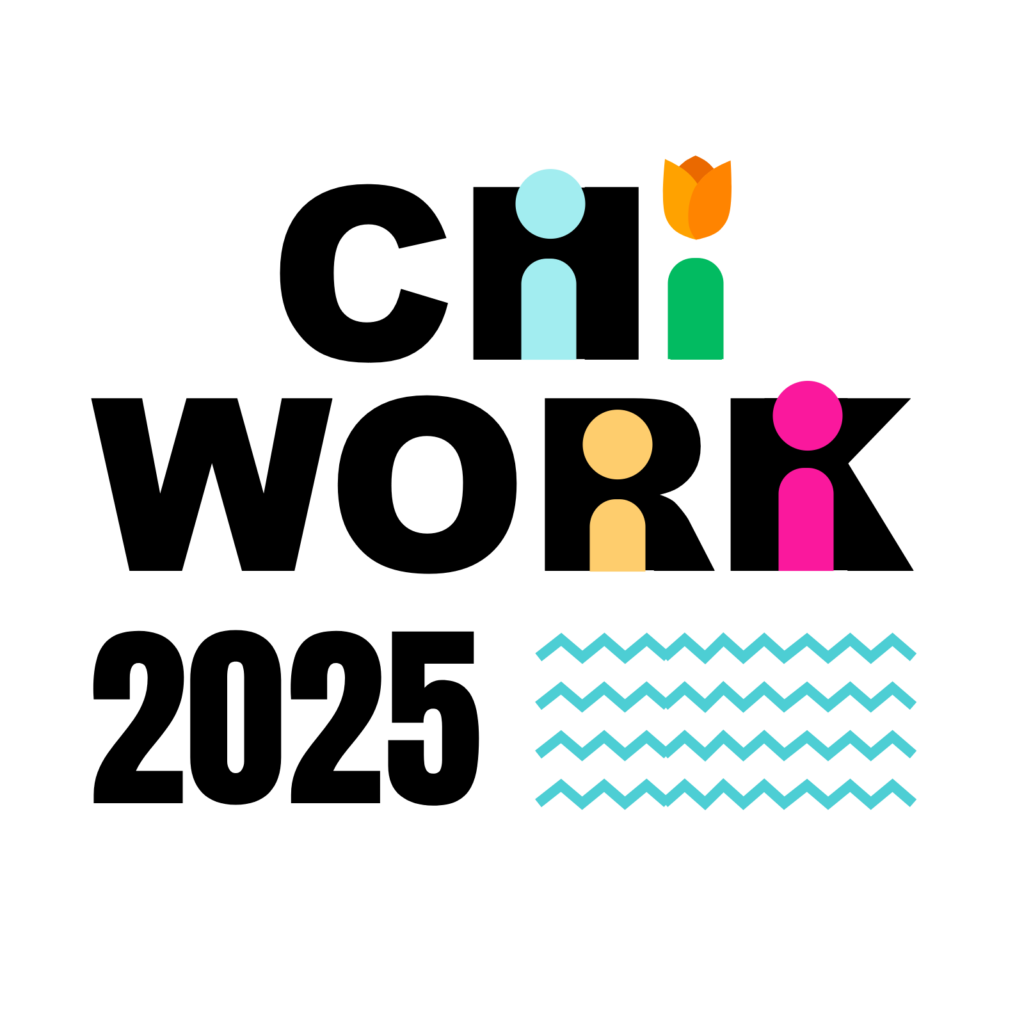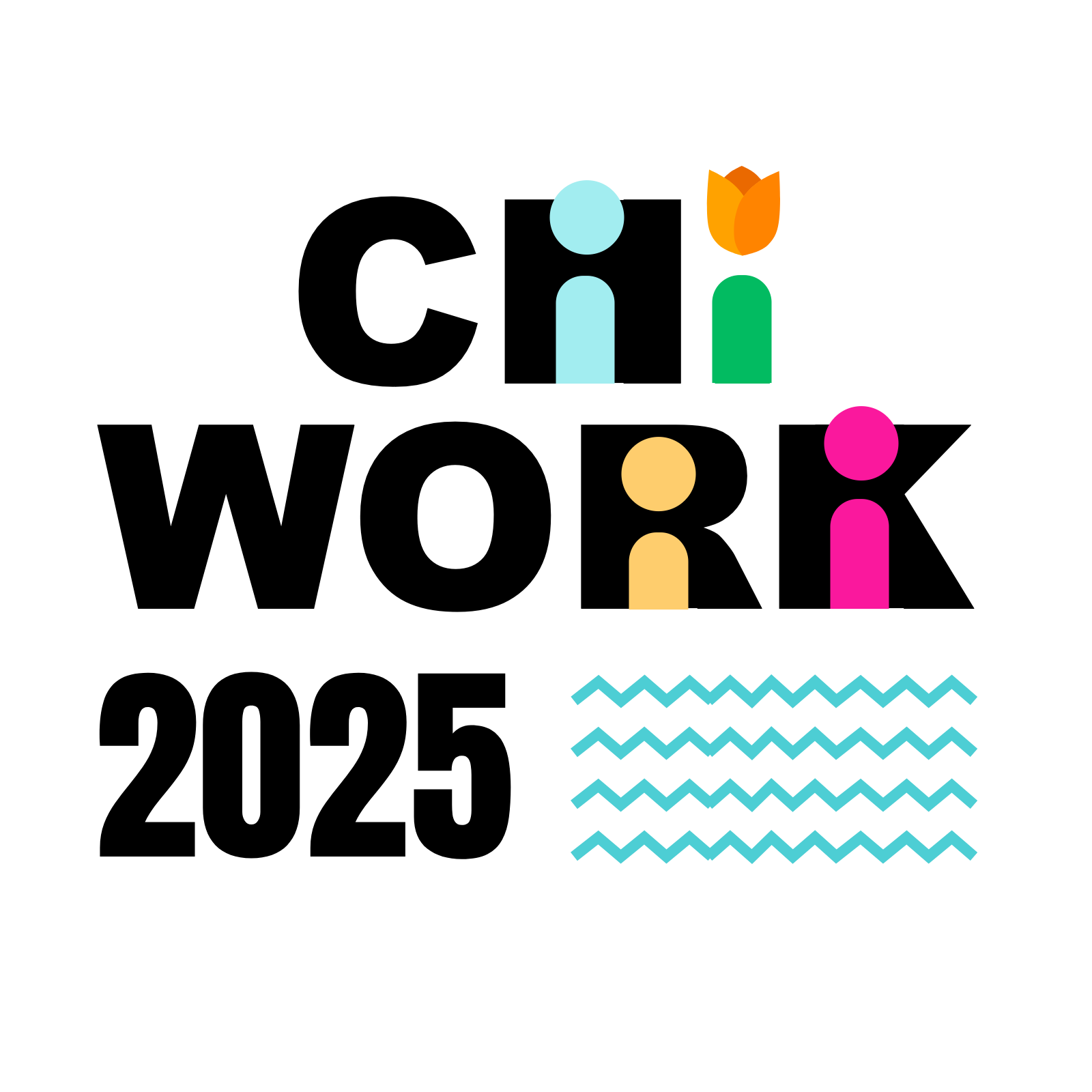The Late-Breaking Works (LBWs) track provides the CHIWORK community with an opportunity to present new and exciting contributions that showcase innovative technologies, extend prior research conversations, detail short self-contained studies, or provide provocations for new work and ideas to emerge. We welcome submissions around a diversity of topics and methodologies. Examples might include:
- An original and innovative technology, technique, or prototype with or without an accompanying evaluation
- A short qualitative or quantitative study with a complete analysis
- A “sequel” to a prior research contribution
- A “prequel” to motivate or provoke novel conversations or future work
- A theoretical or methodological contribution that provokes novel conversations for the discipline
We encourage all members of the CHIWORK community and newcomers to submit Late-Breaking Works to elicit useful feedback, foster discussions, and share valuable and original ideas at the conference.
All LBW submissions are semi-archival. “Semi-archival” means that the results reported in the LBW paper must be original, but copyright is retained by the authors and the material can be used as the basis for future publications in ACM venues as long as there are significant revisions from the original. Companion proceedings will include the Late-Breaking Works (LBWs) presented at the conference. Accepted Late Breaking Works will be published in the CHIWORK ’25 Adjunct Proceedings as Extended Abstracts in the ACM Digital Library. Authors may re-use and re-submit the content to other peer-reviewed venues (e.g., could be reused in a future CHIWORK or CHI full paper submission).
We expect authors with accepted submissions to present their works in person using a poster format and create a short video (1-3 minutes) to showcase the result on our YouTube communication channel.
Important Dates
All times are in Anywhere on Earth (AoE) time zone. When the deadline is day D, the last time to submit is when day D ends AoE. Check your local time in AoE.
- Submission deadline:
March 31, 2025(extended) April 7, 2025 - Notification: April 19, 2025
- e-rights completion deadline:
April 21, 2025(extended) April 25th, 2025 - Camera-ready deadline:
April 26, 2025(extended) April 28th, 2025
Submission Overview
- Online submission: Easychair (https://easychair.org/conferences?conf=chiwork2025), please choose the Late Breaking Work track.
- Template: ACM Master Article Submission Templates (single column)
- Submission length: Up to 6 pages long (excluding references)
- Submissions must be anonymous and should not include any author names, affiliations, and contact information. For more details, please refer to the CHI Anonymization Policy (we follow the policy of the ACM CHI conference).
Preparing and Submitting Your Late Breaking Work
A Late Breaking Work must be submitted via EasyChair. The submission must have an extended abstract in the ACM Master Article Submission Templates (single column; up to 6 pages, excluding references). The correct template for initial submissions is one of:
- 1-column Microsoft Word (acm_submission_template.docx). See this link for more information.
- 1-column LaTeX (sample-sigconf.tex), also on Overleaf. See this link for more information. Please note that the default template is set for 2-column and needs to be manually changed to 1-column for initial review using the following option in LaTeX: \documentclass[manuscript,review,anonymous]{acmart}
The submission can include an optional appendix. The page limit for the appendix is 10 pages. However, note that information that is essential to the understanding of the paper should not be in the appendix (e.g. study protocol, statistical analysis, etc.).
The submission can include optional supplementary material that is not needed to get a good understanding of the paper, but may provide additional details, e.g. for replication. That kind of material may be included in the supplementary material part (not in the main paper) and as such do not count towards the page limit. Please keep in mind that reviewers are not expected to have to check the supplementary material to get a good understanding of the potential study, analysis or results.
Topics of Interest
Topics of interest include, but are not limited to:
- Tools for remote work: working from home, working while commuting, and meetings with remote participants
- New ways of getting work done: techniques for interleaving work; easy resumption, engagement, and disengagement; and incorporating well-being needs in productivity tools
- Working and trust with AI and automation: techniques for cooperation and collaboration with AI agents, new tools for task automation, working in and with automated environments and entities including cars, drones, and robots; designing for fairness, transparency and dignity
- Technologies for the future of work: networking, augmented reality, virtual reality, wearable devices, and human-robot collaboration
- Supporting worker well-being and health: maintaining work-life boundaries, supporting physical movement, and facilitating work attachment and detachment, exploring how systems support or privilege well-being of workers in gendered, race-, caste- and class-informed ways
- Designing digital tools: preparing the ground for professional development and adaptation to and development of individual skills
- Matching and developing worker skills for job opportunities: assessing worker skills, matching existing skills to new job opportunities, platforms and peer-networks for learning new skills
- Inclusion and accessibility: technology that is built for equality and technology that supports all abilities
- Large language models at work: use in practice, risks, organizational and staff perspectives
- Security and privacy: protecting work infrastructure from malicious actors and maintaining privacy while providing personalized support for work and well-being
- Novel ways of measuring outcome: rewarding performance so that it takes into account an individual’s unique needs, incorporating well-being as an integral part of productivity, fostering and measuring creativity and innovation, and supporting self-reflection by workers
- Tools and platforms for hiring and managing workers: new models for hiring, onboarding, and management; understanding and supporting freelancing, on-demand, crowdwork, and gig work
- Societal impact: supporting decision-making for policy and regulation, integrating perspectives of workers, firms, governments, and communities; addressing the economics and resilience of individuals, communities, and society
ACM Publication Policies
The Late Breaking Work track in CHIWORK 2025 follows the ACM publications policies. Please read this separate page (provided by CHI 2025) for more information.
Accessibility
Accessible submissions are essential for reviewers and are good practice. Authors are expected to follow SIGCHI’s Guide to an Accessible Submission. If you have any questions or concerns about creating accessible submissions, please contact the Accessibility Chairs at deia@chiwork.org early in the writing process (the closer to the deadline, the less time the team will have to respond to individual requests).
Selection Process
LBWs submissions are reviewed through an ACM Reviewed process, and receive light feedback from reviewers: at least two per submission from the track chairs, in addition to one by a PC member. The criteria for evaluation are as follows:
- Contribution of the LBW to CHIWORK 2025: Does this work present research contributions or ideas that will stimulate interesting conversation among CHIWORK attendees?
- Significance: How important is the problem or question that this submission addresses? Is there an audience at CHIWORK that would find this work influential and/or compelling?
- Originality: How does the work build on, or speak to, existing work in the area? Does it make a novel contribution?
- Validity: How well are the chosen methods described and justified within the submission?
- Clarity: How clear, understandable, and targeted is the writing? To what extent does the submission conform to all formatting requirements and the page limit?
The submission should contain no sensitive, private, or proprietary information that cannot be disclosed at the time of publication. All submissions are considered confidential during review. All rejected submissions will be kept confidential in perpetuity.
Late Breaking Work Co-Chairs
Francesco Chiossi, LMU Munich, Germany
Yen-Chia Hsu, University of Amsterdam, The Netherlands
For questions, please email latebreakingwork@chiwork.org

